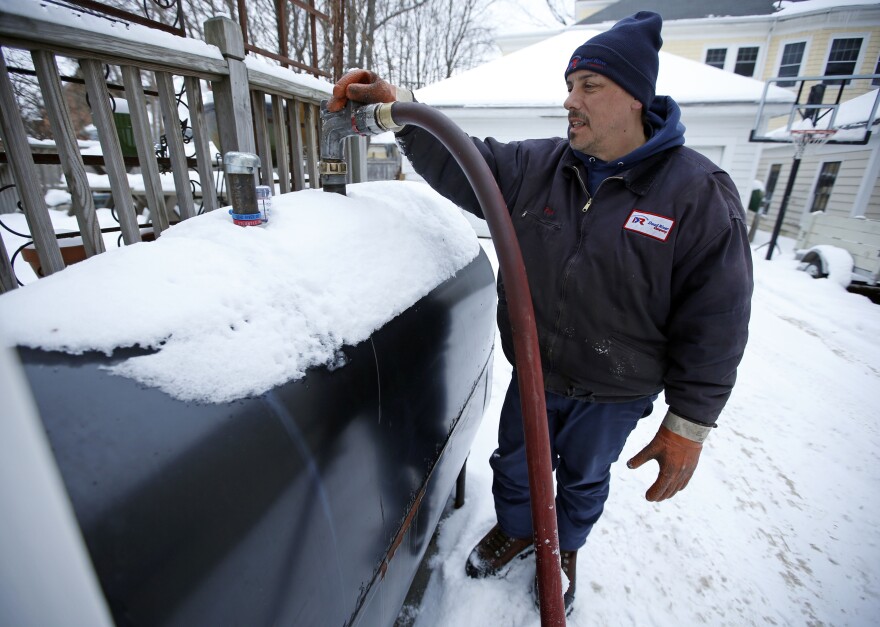Gov. Janet Mills on Thursday urged families to take advantage of roughly $100 million in federal funds available in Maine to winterize homes or cover heating costs. The initiatives come as Maine residents head into what could be the costliest winter in years.
After weeks of mild fall weather, many Mainers likely turned up the thermostat Wednesday night as temperatures dipped below freezing across the state. In a press event in Brewer, Mills seized on the coming cold to promote her administration's decision to earmark $25 million in federal stimulus funds to home weatherization. Efficiency Maine estimates the money will help 3,500 low- to moderate-income households weatherize their homes.
"Making our homes more efficient through weatherization cuts down on our use of fossil fuels, it protects our environment from climate change and it saves people money,” Mills said outside of General Insulation, a Brewer company that supplies insulation and weatherization materials. “Weatherization can save families as much as $700 every heating season."
Additionally, Mills said Maine will tap into roughly $5 million from the federal government to start a Clean Energy Workforce Partnership program to train workers for jobs in the renewable energy sector as well as energy efficiency. The governor has set a goal of 30,000 “clean energy” jobs in Maine by 2030 as part of the ambitious climate goals put forward by her administration and adopted by the Maine Legislature.
But speakers also warned that Mainers are expected to feel the pinch this winter of pandemic-related price surges for heating oil, propane and other fossil fuels.
Additionally, Maine has received nearly $70 million to provide heating assistance to low-income households at a time when pandemic-related supply issues are driving up prices. On average, Maine residents paid $3.15 per gallon for heating oil in late October, which is 68% higher than October of last year.
Dan Brennan, director of MaineHousing, pointed out that only 20% to 25% of income-eligible households in Maine apply for assistance. But Mills and Brennan urged families who need help to reach out to local community assistance programs.
"People in Maine, folks are proud and they don't want to ask for help,” Brennan said. “They think that 'The neighbor needs it more than I do.' But there is plenty of money. We have a lot of money available. We are not going to run out. Please apply."
Kara Hay, chief executive officer at Penquis, said her community action program and its partners statewide also have funding available for weatherization, utility bill assistance as well as emergency rental assistance. She recommended that people go to www.mainehousing.org or www.mecap.org for more information on who to contact or how to apply for assistance.
“We urge anyone who is struggling – whether it is you, your friends, your family, your neighbors – to reach out and seek this funding,” Hay said. “It is here for you. We are here for you and we want to help.”



